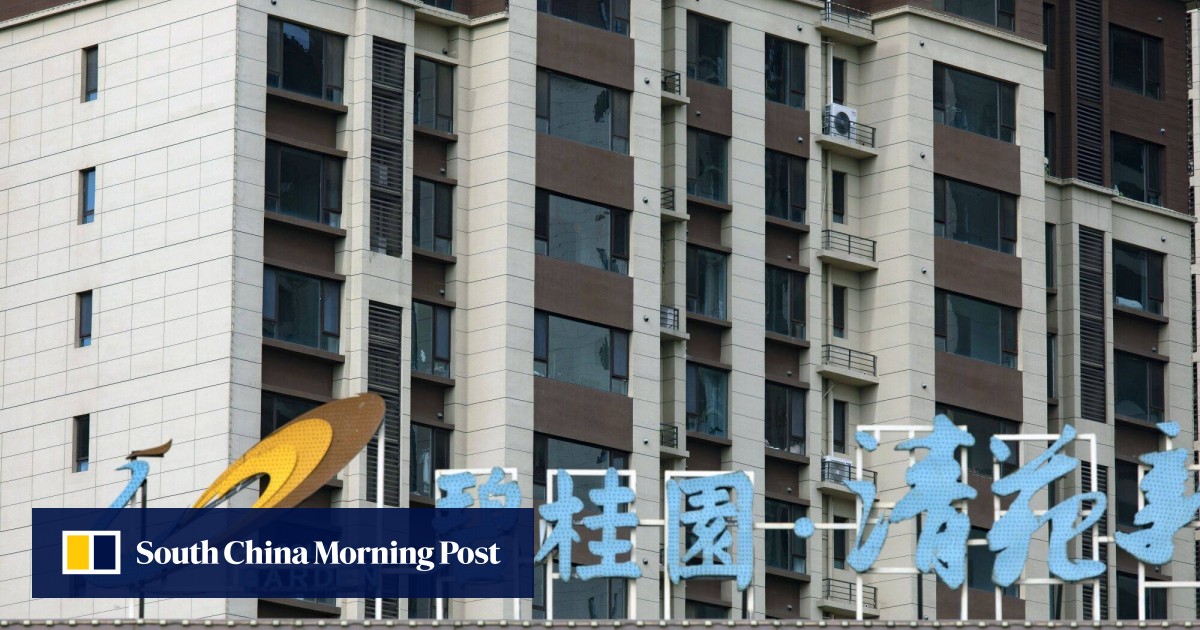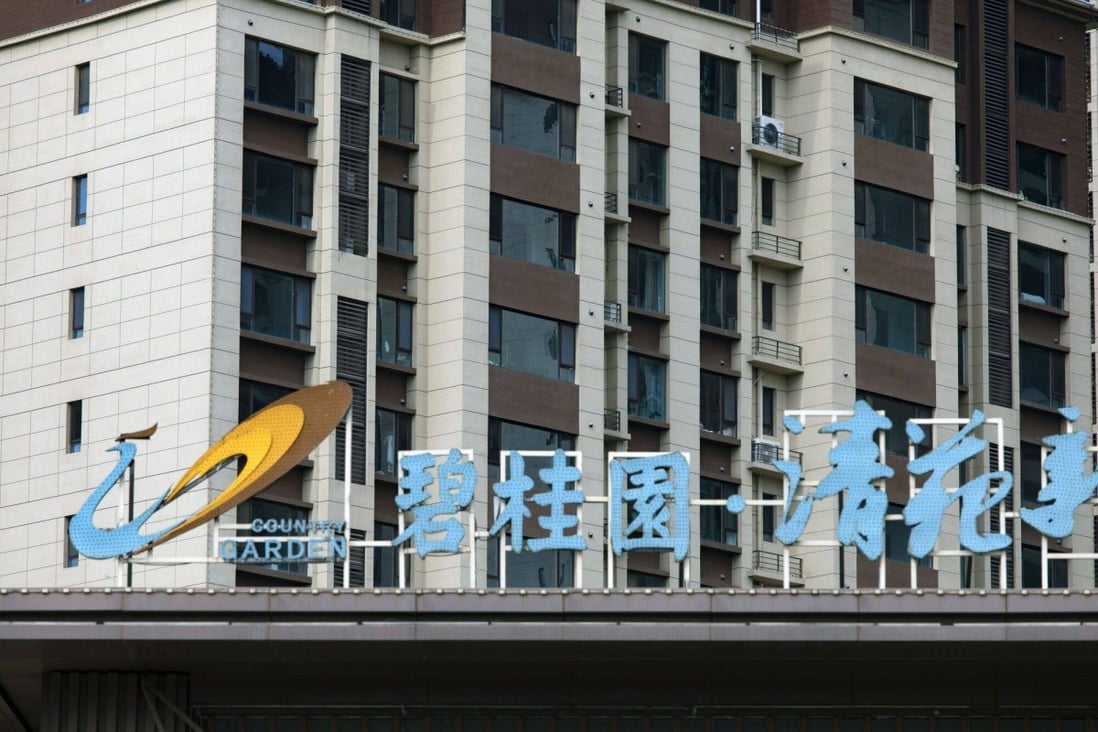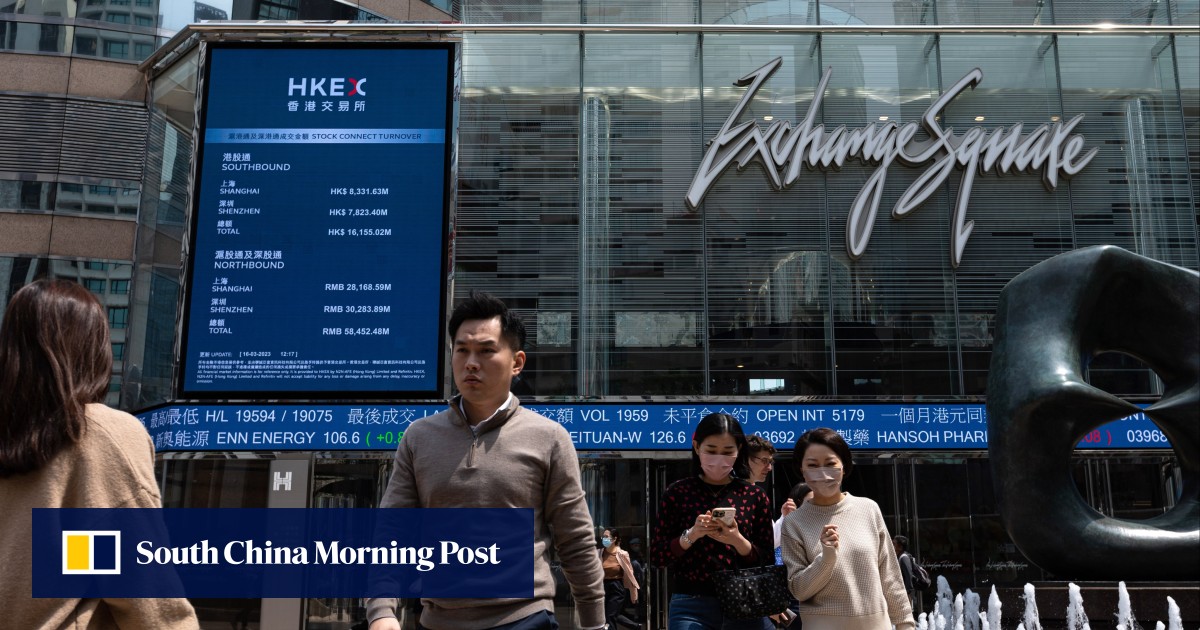Hamartia Antidote
ELITE MEMBER

- Joined
- Nov 17, 2013
- Messages
- 35,183
- Reaction score
- 30
- Country
- Location

Country Garden crisis ‘could trigger a contagion effect’, analysts say
The liquidity crisis at Chinese property developer Country Garden Holdings could spill over to its peers, as the values of their collaterals decline and homebuyers become more cautious about purchases, particularly in smaller cities.
- Country Garden’s missed coupon payments could impact other private property developers, triggering a contagion effect, T. Rowe Price analyst says
- The Hang Seng Mainland Properties Index of key Chinese developers trading in Hong Kong has dropped 4.1 per cent this week, extending last week’s 10 per cent decline

A residential project developed by Country Garden in Baoding, in China’s Hebei province
The liquidity crisis at Chinese property developer Country Garden Holdings could spill over to its peers, as the values of their collaterals decline and homebuyers become more cautious about purchases, particularly in smaller cities.
Developers that are privately run and have high exposure to China’s third and fourth-tier cities will bear the brunt of any contagion risk after Country Garden, once a top industry player, missed US$22.5 million in coupon payments last week, according to US money manager T. Rowe Price Group and investment bank Jefferies Financial Group.
“The repercussions of Country Garden’s missed coupon payments could extend beyond the company itself, impacting other private property developers and potentially triggering a contagion effect,” said Sheldon Chan, a portfolio manager at T. Rowe Price with US$1.43 trillion in assets under management. “In the event of a default, other private property developers may also experience collateral damage.
“The Chinese property sector is anticipated to experience a multi-year structural decline as housing demand shrinks due to factors such as population decline, slower urbanisation, and changes in family formation.”
After a sell-off that turned Country Garden into a penny stock for the first time since it went public in Hong Kong in 2007, investors continue to dump property stocks and bonds amid fears that its cash crunch will infect other firms, spreading quickly and unchecked. The Hang Seng Mainland Properties Index of key Chinese developers trading in Hong Kong has dropped 4.1 per cent this week, extending a 10 per cent decline for the previous five-day period.
In the bond market, even Longfor Group Holdings, which has the least exposure to smaller cities, is reeling from the Country Garden Crisis. Its 3.95 per cent US-dollar bond maturing in September 2029 tumbled 6.6 per cent to 49.84 cents on Wednesday, extending a 9 per cent decline a day earlier.
So far, there is no evidence that suggests the crisis in the property market will be defused any time soon. While China’s top policymakers ditched the slogan “housing is for living, not speculation” at a Politburo meeting in July, there has been no change in the tough restrictions imposed in first-tier cities such as Beijing and Shanghai, which investors say hold sway over China’s property market.
An official report released by the statistics bureau on Wednesday showed that more cities had registered declines in new home prices in July. A day earlier, a separate report by the agency indicated further shrinkage in housing sales last month.
The ripple effect from slumping home prices might be bigger than expected, triggering more defaults by developers, falling government revenues, declining wages for government and property sector workers, and weak consumption, Lu Ting, chief China economist at Nomura Holdings, said in a report on Tuesday.
Country Garden closed at HK$0.83 on Wednesday, rising 2.5 per cent for a second day of recovery. Jefferies estimates that the developer would need a monthly cash flow of 28 billion yuan (US$3.8 billion) for the rest of the year to break even, while its monthly contracted sales only ranged between 12 billion yuan and 18 billion in the May-to-July period.
Developers that are focused on first-tier cities such as China Resources Land and China Overseas Land and Investment might be safe bets, according to Jefferies.
Meanwhile, T. Rowe Rice prefers convertible bonds to distressed debt to ride out the turmoil.
“As uncertainty looms, we will remain patient for opportunities to arise when the market moves towards peak bearishness, and continue to monitor for policy moves, which have been incremental so far,” said T. Rowe Price’s Chan.

Zhang Shidong

